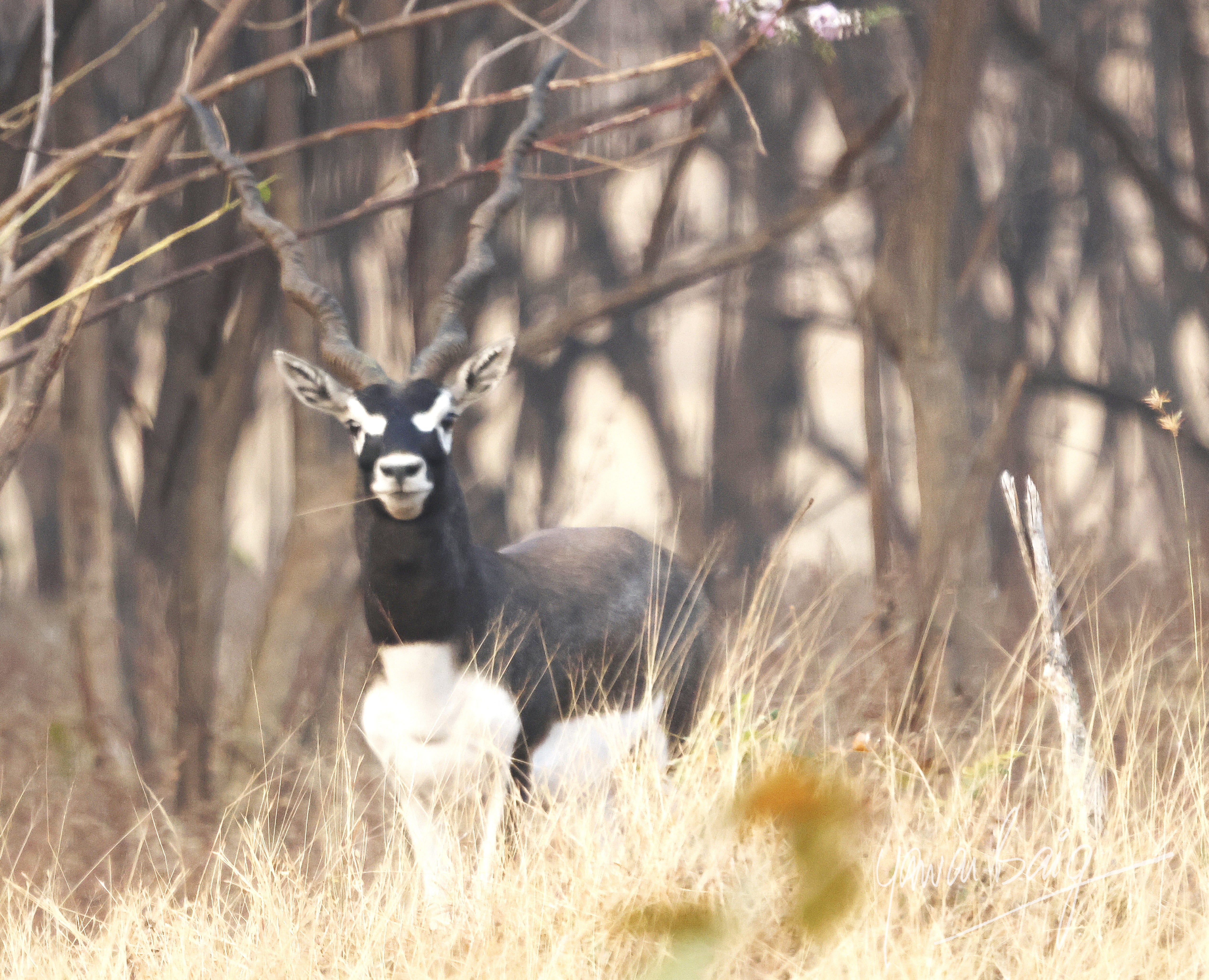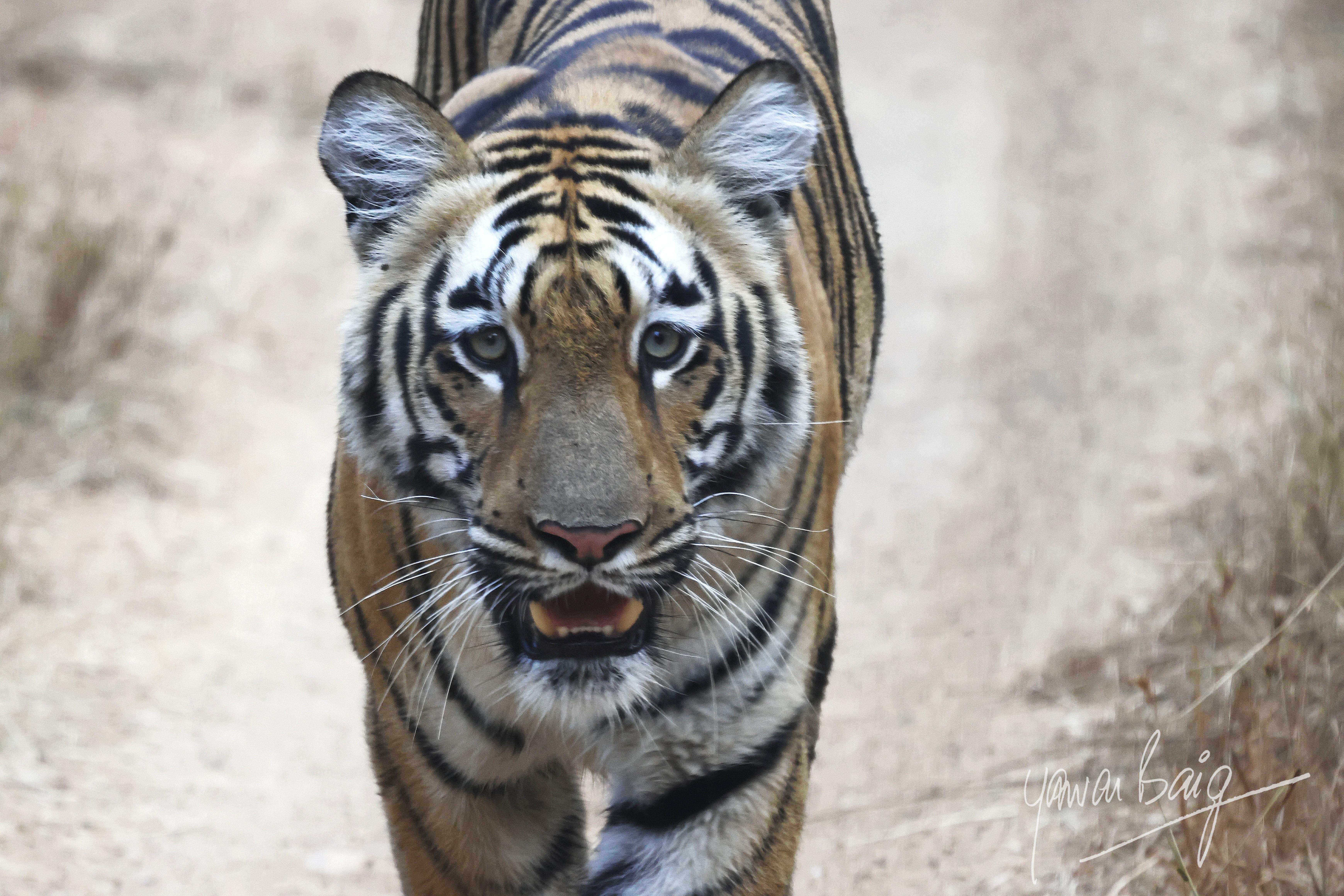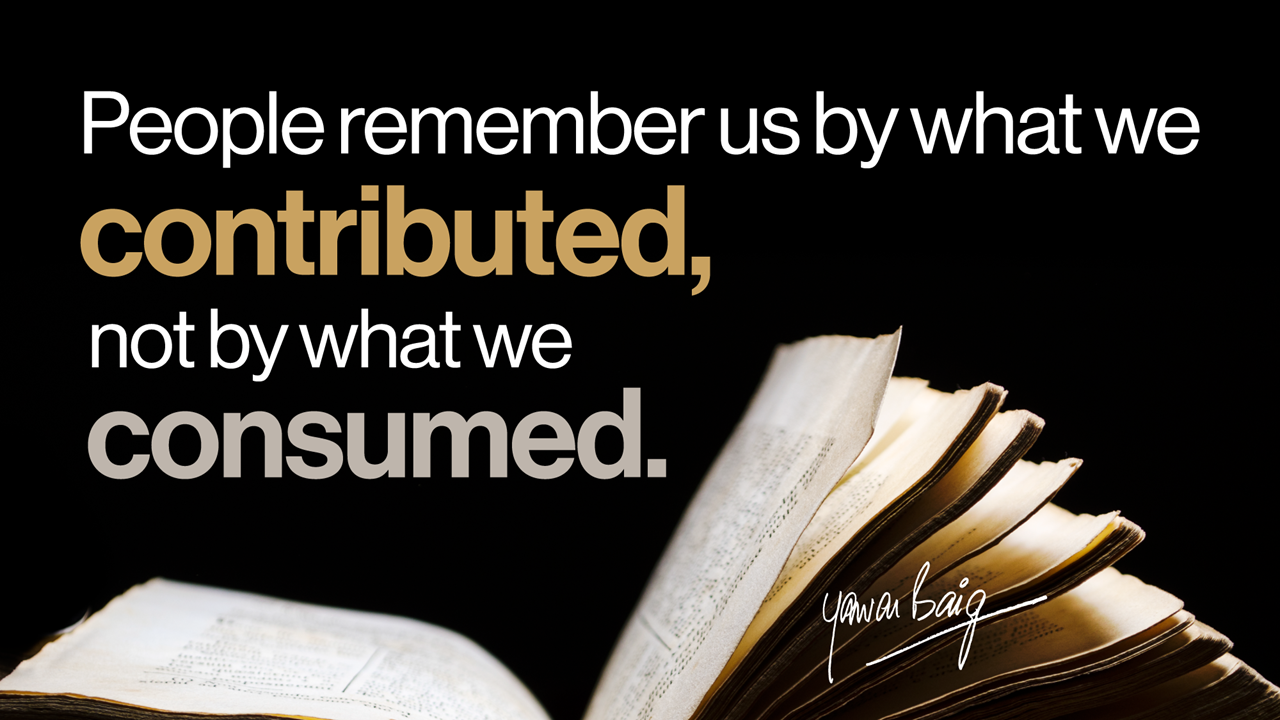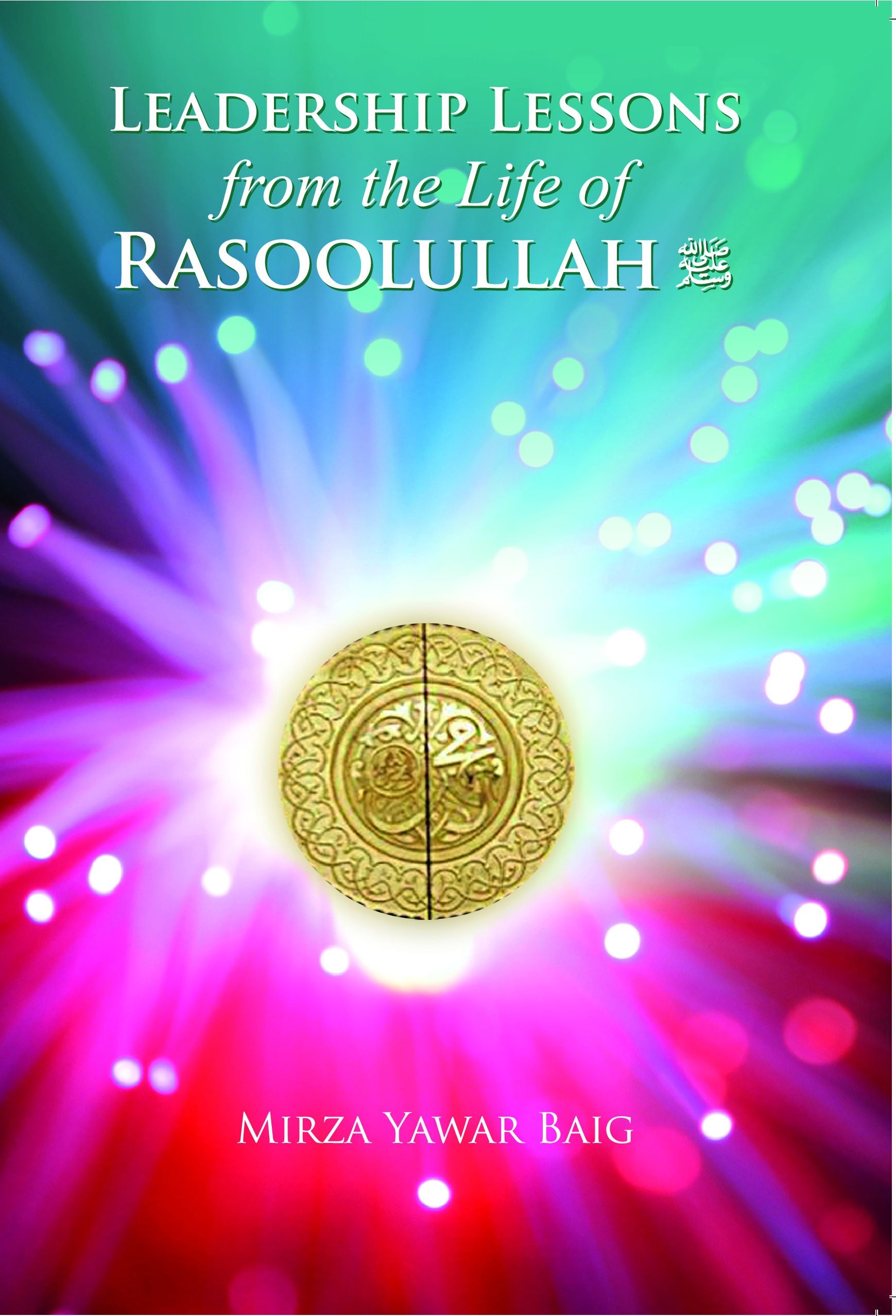
Being a Blackbuck
We spent two nights at the Karnataka Jungle Lodges & Resorts, Blackbuck Resort in Bidar. Lovely cottages, set in natural forest, on the bank of...
I am Mirza Yawar Baig. Business Founder and Entrepreneur, with over 40 years of experience, working with founders and family business leaders in multiple industries across South Asia, India, the Middle East, & Africa.
Primary challenge for all Entrepreneurs/Promoters/Business Heads: To have someone neutral who they can implicitly trust, a sounding board for ideas and confidential matters that can't be shared with others. Someone who can offer advice on various aspects of management including succession planning, coaching and mentoring.
I am Mirza Yawar Baig – Founder & President of YAWAR BAIG & ASSOCIATES™️, International Speaker, Life Coach, Mentor, Trainer, Author and Facilitator specializing in helping people become leaders in all aspects of life. My book, 'The Business of Family Business' shows how to transform organizations from being 'Person-led to becoming Process-driven'.
My learnings come from working for a decade with one of the largest family businesses in India and helping entrepreneurs, Start-ups, and Family businesses in Africa, Middle East, India, and Sri Lanka for the past 4 decades.
Value Proposition: I offer advice and assistance on:
This is not merely consulting. It is counsel grounded in trust, confidentiality, and deep understanding of both people and performance. I don't just offer advice; I help you to create your own solutions and support you until final execution and delivery. If you are at this stage of your journey where you are leading yet seeking clarity, and believe that you can benefit from someone who has walked your path and can be a confidential sounding board, who will tell you what you need to hear and not only what you want to hear, then I would be honored to work with you.
Looking forward to hearing from you.
Are my children truly ready to lead — or am I hoping they are?
What conversations about succession are we avoiding as a family?
If I stepped away for six months, what would actually happen to the business?
Why does the company look successful from the outside, while something feels unsettled on the inside?
Do I have the right leadership team for the next phase — or only the team that got us here?
What will happen to the values and culture we built when the next generation takes over?
Expert guidance tailored to your unique leadership challenges and goals
Strategic guidance for founders building and scaling ventures.
Advisory for conflict resolution, governance, and scaling in family businesses.
Explore thoughts on leadership, personal development, and organizational excellence through articles, reflections, and practical insights.

We spent two nights at the Karnataka Jungle Lodges & Resorts, Blackbuck Resort in Bidar. Lovely cottages, set in natural forest, on the bank of...

"Tyger Tyger, burning bright, / In the forests of the night" is the opening couplet of the famous 1794 poem "The Tyger" by English poet William Bla...

Trusted by executives and founders across three continents for transformational leadership guidance and organizational development.
Trusted by leading organizations across three continents

%20--%3e%3c!DOCTYPE%20svg%20PUBLIC%20'-//W3C//DTD%20SVG%201.1//EN'%20'http://www.w3.org/Graphics/SVG/1.1/DTD/svg11.dtd'%20[%20%3c!ENTITY%20ns_svg%20'http://www.w3.org/2000/svg'%3e%3c!ENTITY%20ns_xlink%20'http://www.w3.org/1999/xlink'%3e%20]%3e%3csvg%20version='1.1'%20id='Layer_1'%20xmlns='&ns_svg;'%20xmlns:xlink='&ns_xlink;'%20width='451.316'%20height='414.473'%20viewBox='0%200%20451.316%20414.473'%20overflow='visible'%20enable-background='new%200%200%20451.316%20414.473'%20xml:space='preserve'%3e%3cg%3e%3cpolygon%20fill='%23486AAE'%20points='14.616,286.732%20116.23,286.732%20116.23,317.654%2087.079,317.654%2087.079,391.969%2044.737,391.969%2044.737,317.654%2014.616,317.654%20'/%3e%3cpolygon%20fill='%23486AAE'%20points='167.692,329.252%20146.298,391.969%20105.635,391.969%20145.516,286.732%20189.677,286.732%20230.519,391.969%20189.356,391.969%20'/%3e%3cpolygon%20fill='%23486AAE'%20points='220.805,286.732%20322.415,286.732%20322.415,317.654%20293.273,317.654%20293.273,391.969%20250.933,391.969%20250.933,317.654%20220.805,317.654%20'/%3e%3cpolygon%20fill='%23486AAE'%20points='373.895,329.252%20352.493,391.969%20311.83,391.969%20351.724,286.732%20395.872,286.732%20436.7,391.969%20395.552,391.969%20'/%3e%3cpath%20fill-rule='evenodd'%20clip-rule='evenodd'%20fill='%23486AAE'%20d='M375.394,93.432c-3.794-7.461-8.791-14.612-15.007-21.318%20c-13.969-15.077-33.678-27.623-57.002-36.276c-23.516-8.72-50.338-13.334-77.595-13.334s-54.079,4.614-77.583,13.334%20c-23.336,8.654-43.046,21.2-57.015,36.276C84.98,78.819,79.967,85.98,76.174,93.445c30.365-7.343,82.306-17.038,130.534-18.063%20c4.652-0.1,7.855,1.39,9.964,4.063c2.569,3.255,2.376,14.858,2.313,20.049l-1.371,134.17c2.716,0.09,5.445,0.148,8.176,0.148%20c2.754,0,5.498-0.045,8.214-0.135l-1.371-134.184c-0.071-5.19-0.27-16.794,2.308-20.049c2.114-2.672,5.306-4.162,9.957-4.063%20C293.106,76.398,345.035,86.095,375.394,93.432'/%3e%3cpath%20fill-rule='evenodd'%20clip-rule='evenodd'%20fill='%23486AAE'%20d='M381.877,110.88c-44.442-10.047-74.121-11.905-103.405-13.53%20c-25.526-1.419-25.859,7.696-23.311,25.115c0.167,1.063,0.372,2.403,0.615,3.931c8.562,50.712,19.224,94.352,21.056,101.759%20c62.23-14.225,107.109-53.664,107.109-99.994C383.941,122.327,383.236,116.547,381.877,110.88'/%3e%3cpath%20fill-rule='evenodd'%20clip-rule='evenodd'%20fill='%23486AAE'%20d='M196.443,122.465c2.551-17.418,2.224-26.534-23.299-25.115%20c-29.294,1.625-58.98,3.482-103.439,13.536c-1.358,5.667-2.072,11.44-2.072,17.274c0,20.024,8.146,39.4,23.56,56.047%20c13.969,15.077,33.679,27.623,57.015,36.282c8.446,3.127,17.359,5.69,26.54,7.74c1.723-6.939,12.63-51.487,21.285-103.106%20C196.193,124.134,196.341,123.221,196.443,122.465'/%3e%3c/g%3e%3c/svg%3e)
'%3e%3cpath%20d='M68.495,107.128L52.155,46.048L175.965,46.048L192.304,107.128L68.495,107.128Z'%20style='fill:rgb(104,70,138);fill-rule:nonzero;'/%3e%3cpath%20d='M177.584,43.938L49.408,43.938L50.828,49.247L66.038,106.108L66.876,109.237L195.051,109.237L193.63,103.928L178.42,47.065L177.584,43.938ZM174.346,48.157L189.555,105.018L70.113,105.018L54.904,48.157L174.346,48.157Z'%20style='fill:white;fill-rule:nonzero;'/%3e%3cpath%20d='M98.277,86.063L108.565,86.063L109.475,82.643L103.297,82.643L104.553,77.989L110.066,77.989L110.977,74.569L105.463,74.569L106.57,70.458L112.75,70.458L113.636,67.11L103.347,67.11'%20style='fill:white;fill-rule:nonzero;'/%3e%3cpath%20d='M132.155,70.458L133.042,67.11L121.565,67.11C119.816,67.11%20119.127,68.512%20118.956,69.104C118.561,70.631%20115.435,82.273%20114.869,84.39C114.597,85.4%20115.337,86.063%20116.321,86.063L127.964,86.063L131.042,74.569L124.392,74.569L123.483,77.989L126.067,77.989L124.812,82.643L119.447,82.643L122.721,70.458'%20style='fill:white;fill-rule:nonzero;'/%3e%3cpath%20d='M158.813,82.715L162.996,67.11L158.934,67.11L153.864,86.063L164.213,86.063L165.125,82.715'%20style='fill:white;fill-rule:nonzero;'/%3e%3cpath%20d='M144.877,79.268L140.594,79.268L144.485,71.49L144.877,71.49L144.877,79.268ZM140.981,67.11L140.981,70.458L132.914,86.063L137.049,86.063L138.894,82.667L144.877,82.667L144.877,86.063L148.963,86.063L148.963,67.11'%20style='fill:white;fill-rule:nonzero;'/%3e%3cpath%20d='M91.11,75.947L85.745,75.947L87.221,70.458L92.587,70.458L91.11,75.947ZM95.42,67.11L83.996,67.11L78.925,86.063L83.037,86.063L84.86,79.295L87.295,79.295L88.28,86.063L92.514,86.063L91.456,79.295L92.268,79.295C93.622,79.295%2094.482,78.532%2094.729,77.572L97.069,68.833C97.386,67.7%2096.699,67.11%2095.42,67.11Z'%20style='fill:white;fill-rule:nonzero;'/%3e%3c/g%3e%3c/svg%3e)



%20--%3e%3c!DOCTYPE%20svg%20PUBLIC%20'-//W3C//DTD%20SVG%201.1//EN'%20'http://www.w3.org/Graphics/SVG/1.1/DTD/svg11.dtd'%20[%20%3c!ENTITY%20ns_svg%20'http://www.w3.org/2000/svg'%3e%3c!ENTITY%20ns_xlink%20'http://www.w3.org/1999/xlink'%3e%20]%3e%3csvg%20version='1.1'%20id='Layer_1'%20xmlns='&ns_svg;'%20xmlns:xlink='&ns_xlink;'%20width='451.316'%20height='414.473'%20viewBox='0%200%20451.316%20414.473'%20overflow='visible'%20enable-background='new%200%200%20451.316%20414.473'%20xml:space='preserve'%3e%3cg%3e%3cpolygon%20fill='%23486AAE'%20points='14.616,286.732%20116.23,286.732%20116.23,317.654%2087.079,317.654%2087.079,391.969%2044.737,391.969%2044.737,317.654%2014.616,317.654%20'/%3e%3cpolygon%20fill='%23486AAE'%20points='167.692,329.252%20146.298,391.969%20105.635,391.969%20145.516,286.732%20189.677,286.732%20230.519,391.969%20189.356,391.969%20'/%3e%3cpolygon%20fill='%23486AAE'%20points='220.805,286.732%20322.415,286.732%20322.415,317.654%20293.273,317.654%20293.273,391.969%20250.933,391.969%20250.933,317.654%20220.805,317.654%20'/%3e%3cpolygon%20fill='%23486AAE'%20points='373.895,329.252%20352.493,391.969%20311.83,391.969%20351.724,286.732%20395.872,286.732%20436.7,391.969%20395.552,391.969%20'/%3e%3cpath%20fill-rule='evenodd'%20clip-rule='evenodd'%20fill='%23486AAE'%20d='M375.394,93.432c-3.794-7.461-8.791-14.612-15.007-21.318%20c-13.969-15.077-33.678-27.623-57.002-36.276c-23.516-8.72-50.338-13.334-77.595-13.334s-54.079,4.614-77.583,13.334%20c-23.336,8.654-43.046,21.2-57.015,36.276C84.98,78.819,79.967,85.98,76.174,93.445c30.365-7.343,82.306-17.038,130.534-18.063%20c4.652-0.1,7.855,1.39,9.964,4.063c2.569,3.255,2.376,14.858,2.313,20.049l-1.371,134.17c2.716,0.09,5.445,0.148,8.176,0.148%20c2.754,0,5.498-0.045,8.214-0.135l-1.371-134.184c-0.071-5.19-0.27-16.794,2.308-20.049c2.114-2.672,5.306-4.162,9.957-4.063%20C293.106,76.398,345.035,86.095,375.394,93.432'/%3e%3cpath%20fill-rule='evenodd'%20clip-rule='evenodd'%20fill='%23486AAE'%20d='M381.877,110.88c-44.442-10.047-74.121-11.905-103.405-13.53%20c-25.526-1.419-25.859,7.696-23.311,25.115c0.167,1.063,0.372,2.403,0.615,3.931c8.562,50.712,19.224,94.352,21.056,101.759%20c62.23-14.225,107.109-53.664,107.109-99.994C383.941,122.327,383.236,116.547,381.877,110.88'/%3e%3cpath%20fill-rule='evenodd'%20clip-rule='evenodd'%20fill='%23486AAE'%20d='M196.443,122.465c2.551-17.418,2.224-26.534-23.299-25.115%20c-29.294,1.625-58.98,3.482-103.439,13.536c-1.358,5.667-2.072,11.44-2.072,17.274c0,20.024,8.146,39.4,23.56,56.047%20c13.969,15.077,33.679,27.623,57.015,36.282c8.446,3.127,17.359,5.69,26.54,7.74c1.723-6.939,12.63-51.487,21.285-103.106%20C196.193,124.134,196.341,123.221,196.443,122.465'/%3e%3c/g%3e%3c/svg%3e)
'%3e%3cpath%20d='M68.495,107.128L52.155,46.048L175.965,46.048L192.304,107.128L68.495,107.128Z'%20style='fill:rgb(104,70,138);fill-rule:nonzero;'/%3e%3cpath%20d='M177.584,43.938L49.408,43.938L50.828,49.247L66.038,106.108L66.876,109.237L195.051,109.237L193.63,103.928L178.42,47.065L177.584,43.938ZM174.346,48.157L189.555,105.018L70.113,105.018L54.904,48.157L174.346,48.157Z'%20style='fill:white;fill-rule:nonzero;'/%3e%3cpath%20d='M98.277,86.063L108.565,86.063L109.475,82.643L103.297,82.643L104.553,77.989L110.066,77.989L110.977,74.569L105.463,74.569L106.57,70.458L112.75,70.458L113.636,67.11L103.347,67.11'%20style='fill:white;fill-rule:nonzero;'/%3e%3cpath%20d='M132.155,70.458L133.042,67.11L121.565,67.11C119.816,67.11%20119.127,68.512%20118.956,69.104C118.561,70.631%20115.435,82.273%20114.869,84.39C114.597,85.4%20115.337,86.063%20116.321,86.063L127.964,86.063L131.042,74.569L124.392,74.569L123.483,77.989L126.067,77.989L124.812,82.643L119.447,82.643L122.721,70.458'%20style='fill:white;fill-rule:nonzero;'/%3e%3cpath%20d='M158.813,82.715L162.996,67.11L158.934,67.11L153.864,86.063L164.213,86.063L165.125,82.715'%20style='fill:white;fill-rule:nonzero;'/%3e%3cpath%20d='M144.877,79.268L140.594,79.268L144.485,71.49L144.877,71.49L144.877,79.268ZM140.981,67.11L140.981,70.458L132.914,86.063L137.049,86.063L138.894,82.667L144.877,82.667L144.877,86.063L148.963,86.063L148.963,67.11'%20style='fill:white;fill-rule:nonzero;'/%3e%3cpath%20d='M91.11,75.947L85.745,75.947L87.221,70.458L92.587,70.458L91.11,75.947ZM95.42,67.11L83.996,67.11L78.925,86.063L83.037,86.063L84.86,79.295L87.295,79.295L88.28,86.063L92.514,86.063L91.456,79.295L92.268,79.295C93.622,79.295%2094.482,78.532%2094.729,77.572L97.069,68.833C97.386,67.7%2096.699,67.11%2095.42,67.11Z'%20style='fill:white;fill-rule:nonzero;'/%3e%3c/g%3e%3c/svg%3e)


From the author of 40+ books, discover proven strategies for family business transformation and leadership development.

Essential Wisdom for Effective Leadership
Practical leadership lessons drawn from years of experience coaching executives and building successful organizations. Learn the fundamentals of leading with purpose and impact.